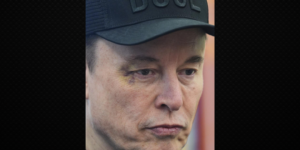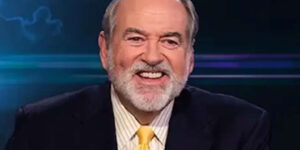Justices Wary of Broad Ruling Endorsing Gay Marriage
Supreme Court justices signaled on Tuesday that they are reluctant to embrace a broad ruling finding a fundamental right to marriage for gays and lesbians across the United States.
Supreme Court justices signaled on Tuesday that they are reluctant to embrace a broad ruling finding a fundamental right to marriage for gays and lesbians across the United States.
 Exposing ‘No Kings’: Billionaire-Funded Anti-Trump Machine Gears Up for June 14 Power Grab
Exposing ‘No Kings’: Billionaire-Funded Anti-Trump Machine Gears Up for June 14 Power Grab As America prepares to honor the birthday of President Donald ...
 Fight, Mishap or Warning? Elon Musk’s Black Eye Fuels Theories
Fight, Mishap or Warning? Elon Musk’s Black Eye Fuels Theories Right now, Elon Musk is making waves across the ...
 Miracle: Boy, 12, Saves Family from House Fire
Miracle: Boy, 12, Saves Family from House Fire A 12-year-old boy in Petersburg, Virginia, is being praised for ...
 Huckabee Shocks with U.S. Policy Shift on Palestinian State
Huckabee Shocks with U.S. Policy Shift on Palestinian State U.S. Ambassador to Israel Mike Huckabee declared Tuesday that ...
 Trump Honors America With Military Parade While Leftist Protesters Lash Out
Trump Honors America With Military Parade While Leftist Protesters Lash Out By all accounts, this Saturday’s military parade in Washington, D.C ...
 4 Reasons Why Islam Is Growing Faster Than Christianity
4 Reasons Why Islam Is Growing Faster Than Christianity A new report from the Pew Research Center paints a ...
 ‘Duck Dynasty’s’ Miss Kay Is in Rough Shape After the Death of Phil Robertson: ‘We’re Trying to Help Her’
‘Duck Dynasty’s’ Miss Kay Is in Rough Shape After the Death of Phil Robertson: ‘We’re Trying to Help Her’ Hard times are reverberating through the “Duck Dynasty” clan. Kay ...
 Trump and Netanyahu Stand at a Biblical Crossroads for Peace and Power
Trump and Netanyahu Stand at a Biblical Crossroads for Peace and Power In a high-stakes phone call between two of the world's ...
 Trump Greenlights ‘All Such Action Necessary’ to Pacify LA, Illegal, Criminal Rioters
Trump Greenlights ‘All Such Action Necessary’ to Pacify LA, Illegal, Criminal Rioters President Donald Trump threw down the gauntlet to left-wing rioters ...
 Is Israel About to Strike Iran? Here’s What We Know
Is Israel About to Strike Iran? Here’s What We Know As tensions in the Middle East continue to escalate ...